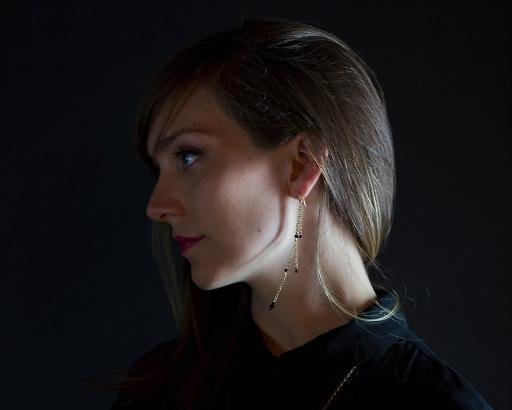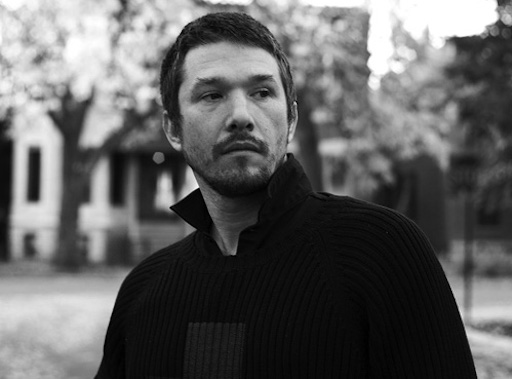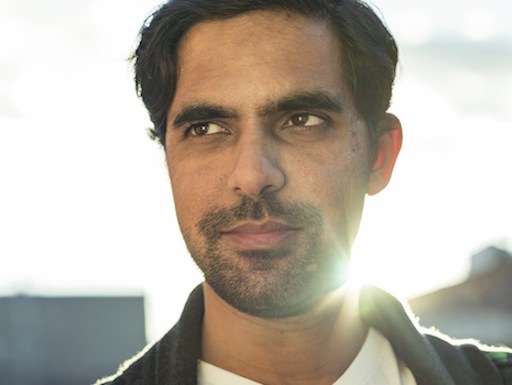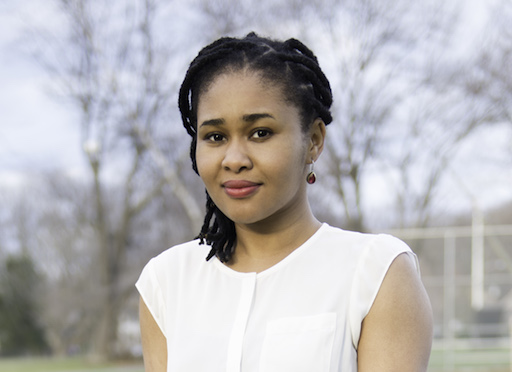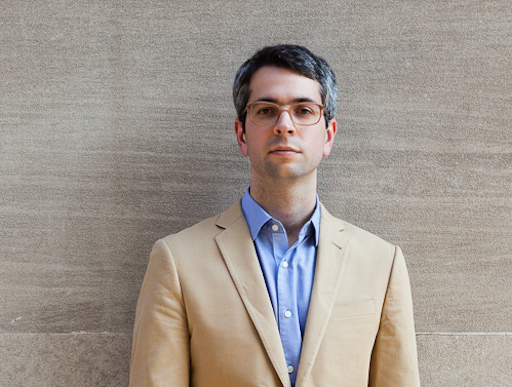
5 Questions for Granta's Best Young American Novelists
Catherine Lacey, Chinelo Okparanta, and More
Every ten years Granta Magazine publishes a special issue titled Best of Young American Novelists, a collection of new fiction by the best young American writers under the age of 40. The last issue was published in 2007, and featured the likes of Anthony Doerr, Jonathan Safran Foer, Yiyun Li, ZZ Packer, Karen Russell, and Gary Shteyngart. Below are some of this decade’s best young American novelists reflecting on the Great American Novel, late-bloomers, and how to give your dog good news. (Scroll down for the full list of Granta‘s Best Young American Novelists 2017—featuring the likes of Claire Vaye Watkins, Joshua Cohen, Yaa Gyasi, and more…)
Catherine Lacey
Who were you most excited to share the news with (mom, mentor, dog)?
Far and away I was most excited to tell the dog I share with Jesse Ball. We were all in Montana when we got the news and we all felt very American, for better or worse. I am biased but I do think he is one of the best young American dogs. He’s two, which is pretty young.
Who is your favorite former Best Young American Novelist?
I started reading Lorrie Moore in high school and I have never really stopped.
Who is your favorite late bloomer, late-career writer?
WG Sebald, no contest, hands down, full stop.
What do you think the great American novel is?
An utter myth.
What book are you reading now?
As of this morning, The Protestant Ethic and The Spirit of Capitalism by Max Weber. It’s clearly a knee-slapper.
____________________________
GRANTA’S BEST YOUNG AMERICAN NOVELISTS 2017, THE FULL LIST
Catherine Lacey · Jesse Ball · Anthony Marra · Chinelo Okparanta · Sana Krasikov · Karan Mahajan · Lauren Groff · Mark Doten · Ottessa Moshfegh · Emma Cline · Rachel B. Glaser · Ben Lerner · Garth Risk Hallberg · Claire Vaye Watkins · Joshua Cohen · Yaa Gyasi · Halle Butler · Jen George · Greg Jackson · Dinaw Mengestu · Esmé Weijun Wang
____________________________
Jesse Ball
Who were you most excited to share the news with (mom, mentor, dog)?
I broke the rules and told my dog immediately, so he’s in the loop. I could tell him again, I suppose.
Who is your favorite former Best Young American Novelist?
Thomas Bernhard, by a long shot.
Who is your favorite late bloomer, late-career writer?
Wilfred Thesiger.
What do you think the great American novel is?
Possibly no longer a novel. Something that demonstrates what is felt, both particularly and in common, at some point in time. But experience is so various, and any iteration excludes others; it is a tall order. I have always preferred minor works to great works, at least in prose. Maybe great works are too similar to one another—don’t you have the impression you can avoid reading them, and should?
What book are you reading now?
The Carson fragmentary Sappho: If Not, Winter.
Karan Mahajan
Who were you most excited to share the news with (mom, mentor, dog)?
My parents! You need to inform the gene-factory first.
Who is your favorite former Best Young American Novelist?
I don’t do favorites. But I’m a fan of Elizabeth McCracken, who was a teacher and mentor of mine.
Who is your favorite late bloomer, late-career writer?
Another favorite! Ok, I give in: the brilliant, canny, and criminally under-read Cynthia Ozick. She didn’t bloom that late—she was 38 when she published her first novel—but I know she felt permanently out of step with her generation of super-achieving Jewish-American writers.
What do you think the great American novel is?
It atones for every American sin. Just kidding, I have no idea.
What book are you reading now?
Jenny Zhang’s debut short-story collection Sour Heart—it’s the most ribald and honest thing I’ve read in ages, an uncomfortably close look at the lives of Chinese-American girls in Queens and elsewhere, with a Roth-ian rage directed at society at large.
Chinelo Okparanta
Who were you most excited to share the news with (mom, mentor, dog)?
My mom is my first-in-line for all important news in my life, so I was most excited to share the news with her. She has a level-headed way with things, a proper balance between celebrating and carrying on with just living life.
Who is your favorite former Best Young American Novelist?
I’m a fan of so many of them—I teach ZZ Packer in my classroom. I love Karen Russell’s work, as well as Beasts of No Nation by Uzodinma Iweala. Anthony Doerr’s All the Light We Cannot See is a beautiful, poetic masterpiece. Sherman Alexie and his interrogation of identity politics. But if I had to pick just one person, I would say Edwidge Danticat. I will never forget Krik, Krak, which was my introduction to her. I’ve followed her work since and have not been disappointed.
Who is your favorite late bloomer, late-career writer?
Well, she’s not a late-bloomer in my mind (by whose definition is one a late-bloomer? I’m not sure how one goes about calculating such a thing), but I do love Toni Morrison, and I believe her first novel, The Bluest Eye, one of my favorite works of literature, was not published until she was 40.
What do you think the great American novel is?
A myth, as most “great” things are.
What book are you reading now?
I just finished The Sympathizer by Viet Thanh Nguyen. It is a brilliant examination of race politics, among other things.
Anthony Marra
Who were you most excited to share the news with (mom, mentor, dog)?
My partner, who gave me a big smile and said she was proud of me. We celebrated by going to a swanky ice cream parlor and getting ten-dollar sundaes. It was a perfect day.
Who is your favorite former Best Young American Novelist?
Elizabeth McCracken and Ethan Canin. In my first semester of grad school I had the inordinate good luck to take classes with both of them, and it was with their encouragement that I started working on A Constellation of Vital Phenomena. Through their work and example, I began to figure out who I was as a writer.
Who is your favorite late bloomer, late-career writer?
Giuseppe di Lampedusa was in his late fifties when he wrote his one and only novel, The Leopard, and he died before it was published. The novel is about the decline of Sicilian nobility during Risorgimento, and it’s magnificent in its evocation of historical change and one aristocrat’s attempt to cling to a world that has already vanished. It is both a first novel and the work of a master.
What do you think the great American novel is?
To my mind, the idea of the great American novel is a misunderstanding of greatness, America, and novels. The beauty of American literature is its abundance of voices, perspectives, mythologies, and experiences. The great American novel isn’t a book—it’s your local library.
What book are you reading now?
The Blind Assassin by Margaret Atwood and Such Small Hands by Andres Barba.
Sana Krasikov
Who were you most excited to share the news with (mom, mentor, dog)?
My father, Jacob. There’s a lot of him in The Patriots.
Who is your favorite former Best Young American Novelist?
That’s a tough question. Both lists have so many fabulous writers: Elizabeth McCracken, Jonathan Franzen, Yiyun Li, Akhil Sharma, Gary Shteyngart, it goes on. I really love Karen Russell’s prose. I have a line of hers clipped from a magazine, where she describes digital waves as “fluming consequences.”
Who is your favorite late-bloomer, late career writer?
Tillie Olsen.
What do you think the great American novel is?
I’ve noticed that many novels that enter the canon of “Great American Novels” tend to be set at the tail end of a period. A Fin De Siecle. If you read the last five pages of Wharton’s The Age of Innocence the story skips forward and you suddenly see how fusty this world looks to people just ten years in the future when modernity has set in. How outdated its mores and codes. Same with a novel like Jane Smiley’s A Thousand Acres. We’re watching epic generational battles unfold on a stage that’s about to collapse in on itself. You could name so many great American novels that exploit this reversal of perception. Maybe those books remind us of what we’re experiencing today: that gradualism is an illusion. That history is more a punctuated equilibrium. Which possibly means we’ll be seeing a lot of interesting novels come out in the next few years.
What are you reading?
A collection of articles by Elena Kostyuchenko called We Have to Live Here. The Vegetarian by Han Kang. Imagine Me Gone, by Adam Haslett. Heroes of the Frontier by Dave Eggers.









